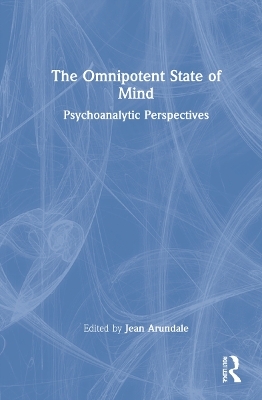
The Omnipotent State of Mind
Routledge (Verlag)
978-1-032-02793-7 (ISBN)
Linked with narcissism but underdeveloped as a concept in its own right, omnipotence is explored in this book from a range of psychoanalytic perspectives, including its positive value in normal development through to its potential as a destructive element in the personality. The Omnipotent State of Mind is presented in five parts, each exploring a specific theme. The contributors explore omnipotence in infants, children, adolescents and adults, consider why it is so difficult to give up, and examine how the omnipotent state of mind is expressed in culture and society. The range of attitudes towards omnipotence within different psychoanalytic traditions is represented by the international selection of contributors.
The Omnipotent State of Mind will be of great interest to psychoanalysts in practice and in training, to psychoanalytic psychotherapists and to other professionals interested in omnipotent states of mind.
Jean Arundale, PhD, is a training and supervising analyst of the British Psychoanalytic Association and author of the book Identity, Narcissism, and the Other (Routledge). She is also co-editor of Transference and Countertransference and Interpretive Voices (both Routledge).
Introduction In the beginning . . . 1. The survival function of primitive omnipotence 2. The thumb-in-the-mouth phantasy and the capacity to love 3. Peter Pan, the omnipotent child In the adolescent . . . 4. Omnipotence in adolescence 5. Customising the body: From omnipotence to autonomy In the adult . . . 6. On three forms of thinking: Magical thinking, dream thinking, and transformative thinking 7. The appeal of omnipotence 8. A neuropsychoanalytic note on omnipotence 9. The relinquishment of omnipotence in a severely traumatised patient 10. Possessed by a cruel God: The damaging effect of an omnipotent internal object 11. From patients to presidents: The Grand Illusion Why is omnipotence so difficult to give up? 12. Overcoming obstacles in analysis: Is it possible to relinquish omnipotence and accept receptive femininity? 13. Omnipotence and the difficulty in relinquishing it The desire for power in culture and society . . . 14. Omnipotence and the paradoxes of insight: A Darwinian look 15. Lear, Kane and the workings of omnipotence 16. Applying my theory of psychosis to the Nazi phenomenon 17. The destructiveness of omnipotence and ‘perverted containing’: Psychoanalytic reflections on the dynamic between Donald Trump and his supporters 18. Notes toward a model for omnipotence
| Erscheinungsdatum | 13.06.2022 |
|---|---|
| Zusatzinfo | 1 Halftones, black and white; 1 Illustrations, black and white |
| Verlagsort | London |
| Sprache | englisch |
| Maße | 156 x 234 mm |
| Gewicht | 517 g |
| Themenwelt | Geisteswissenschaften ► Psychologie ► Klinische Psychologie |
| Geisteswissenschaften ► Psychologie ► Psychoanalyse / Tiefenpsychologie | |
| Medizin / Pharmazie ► Medizinische Fachgebiete ► Psychiatrie / Psychotherapie | |
| ISBN-10 | 1-032-02793-2 / 1032027932 |
| ISBN-13 | 978-1-032-02793-7 / 9781032027937 |
| Zustand | Neuware |
| Haben Sie eine Frage zum Produkt? |
aus dem Bereich


